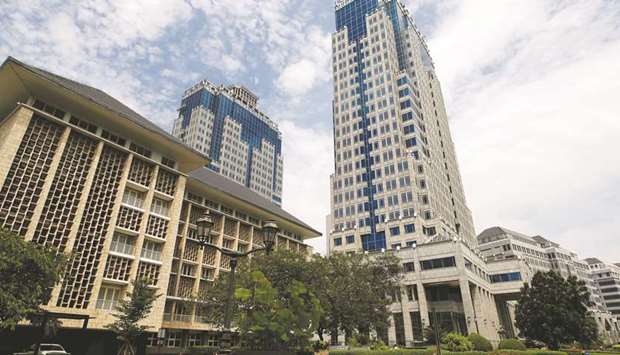In a country with a history of high and volatile inflation rates, it’s been a period of relative calm in Indonesia.
Price pressures, particularly for food, have been unusually subdued this year, contributing to a favourable economic environment that’s fuelled record bond inflows into Indonesia and enabled the central bank to resume cutting interest rates.
Seasonal factors may be helping, but there are also structural shifts at play as Bank Indonesia better coordinates its policy with the government to keep inflation under control. From regional teams that work to ease food bottlenecks, to cooperation on curbing financial-sector risks, central bank watchers say Indonesia has come a long way in building credibility in its monetary policy.
“Their coordination to monitor prices of key commodities, particularly food, and address pressures quickly is starting to be more effective,” said Euben Paracuelles, an economist at Nomura Holdings in Singapore. “This has allowed BI to cut its policy rate at the previous meeting and there is scope for these efforts to keep inflation relatively low and stable in coming months.”
Subdued inflation may be reason enough for the central bank to follow through with another rate cut yesterday, according to seven of the 27 economists surveyed by Bloomberg, who predict the benchmark rate will drop by 25 basis points to 4.25%. The rest see no change.
Consumer prices rose 3.8% in August from a year earlier, down from 3.9% in July, and well within the bank’s 3% to 5% target. Food inflation has been steadily slowing to reach 1.5% in August from about 7% a year ago.
The central bank has regional inflation monitoring committees that work with various government agencies, including the police, to combat everything from cartels that keep chilli prices high to helping farmers grow rice.
Economists also point to price caps on staples, such as rice, and higher import quotas on food products, including beef, before the Islamic fasting month of Ramadan, that have helped to keep inflation under control.
“Addressing inflation is one example where we can coordinate and meet halfway,” Bank Indonesia Governor Agus Martowardojo told Bloomberg News on the sidelines of an event in Jakarta on Tuesday. “We are certain that if BI and the government can keep inflation in check and stable, that will become the basis of sustainable economic growth.”
In a speech in Singapore on Thursday, the governor said Indonesia was in an “era of structurally low and stable inflation.” The adoption of a transparent inflation targeting plan and “strong coordination between Bank Indonesia and the government in settling many supply-side constraints” has helped to anchor inflation expectations, he said.
Improved policy management has gotten the attention of credit rating companies. Even before S&P Global Ratings raised Indonesia’s rating to investment grade this year, it noted “better policy coordination between the BI and the Ministry of Finance and the other areas of economic policy.”
The return of Sri Mulyani Indrawati, a former World Bank managing director, as finance minister last year has played some part in that positive assessment. She is well respected by investors and also shares some history with Martowardojo, having handed over the reigns of the finance portfolio to him when her previous stint in government ended in 2010.
Her comments on monetary policy have been consistent with the message from Bank Indonesia. She said on September 16 that the central bank is looking if there’s room to cut interest rates because doing so won’t “jeopardise their objective of stabilising the inflation” and that is the “right policy that they have taken.”
The big uncertainty weighing on the central bank is how financial markets will respond to the withdrawal of monetary policy stimulus in the US and other developed countries, which could hammer currencies in emerging markets. The Federal Reserve said on Wednesday it will begin trimming its $4.5tn balance sheet in October.
Bank Indonesia has armed itself with record foreign reserves of almost $129bn to respond to any currency shock. The rupiah has gained 1% against the dollar this year and was trading at 13,338 as of 12:45pm in Jakarta yesterday.
Nomura’s Paracuelles, who is predicting rates will stay unchanged on Friday, said external risks are a key policy consideration for Bank Indonesia. “The vulnerability to large capital outflow remains,” he said.

A general view of Bank Indonesia’s headquarters in Jakarta. Price pressures, particularly for food, have been unusually subdued this year, contributing to a favourable economic environment that’s fuelled record bond inflows into Indonesia and enabled the central bank to resume cutting interest rates.
